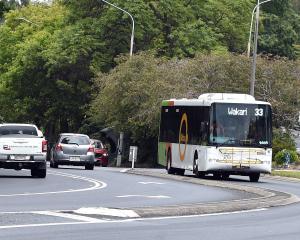The team of about 25 people at innovation workSpace specialises in helping transform fledgling ideas into products ready for the market and is working with individuals and companies from Dunedin, across New Zealand and as far afield as Beijing.
Team manager Eva Gluyas said she hoped to double its staff numbers this year.
Those working at innovation workSpace now included product engineers who had previously worked for companies such as Fisher and Paykel, web designers, code writers and a surface chemist.
The Dunedin-based projects the polytechnic unit was working on included a biodegradable alternative to aluminium hair dye foil (with Amanda Buckingham), which Ms Gluyas believed could generate $50 million in product turnover within two and a-half years of it being picked up by a global distributor.
Others were a wind turbine developed with Powerhouse Wind and filtration devices used above commercial cooking equipment being developed with Ellis Fibre.
It was also working on other projects, including a project with a farming group out of North Otago, which she predicted would ''revolutionise the small farming industry''.
She was unable to reveal details about some of the projects because of commercial sensitivity.
All the ideas had the potential to boost Dunedin's economy, she said.
''When you start developing businesses that are generating $50 million turnovers over two and a-half years, you don't have to be a genius in macroeconomics to understand the changes you can have on the economic environment.''
The team's success was demonstated by the fact that over the past two years it had received just over $2 million through the Ministry of Business, Innovation and Employment's technology transfer voucher scheme - more than any other tertiary institution.
''The [University of Otago] was the second-largest, with a much higher number of projects, but a lower dollar value than us,'' Ms Gluyas said.
''Together, we had over half the funding in the country.''
This meant exciting times for Dunedin.
''What is going on in this country is happening here. There is a hell of a lot going on.''
The team was attracting interest from not only Dunedin individuals and companies, but from people around New Zealand and the world.
''We are absolutely swamped with people coming to us, inquiries coming to us, being recommended by other tertiary institutions around the country.''
Ms Gluyas, who spent 15 years designing medical equipment, shifted to Dunedin from the United Kingdom and believed the hype that New Zealanders were the ''most inventive people on the planet'' after looking at international patent statistics.
''[New Zealand] is the most inventive country by a factor of two. You convert 3% of your patents into merchantable product, the United States about 1.2%, the United Kingdom 0.8%.
''This is a remarkable culture and Dunedin is the best place in the country.''
She had no plans to move back to the United Kingdom, she said.
''I will have been here for five years in April and when it gets to April 8 I am going to get my [New Zealand] passport and tear up my British one.''











